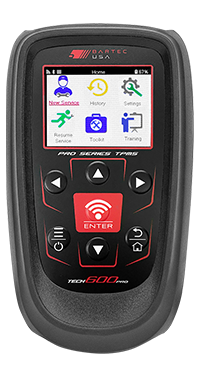What is Mitsubishi TPMS?
US Legislation & Mitsubishi TPMS
The Mitsubishi TPMS or TPWS was introduced to comply with the new Federal motor vehicle safety standard established by the National Highway Traffic Safety Administration (NHTSA) requiring installation of Tire Pressure Monitoring Systems as mandated by the Transportation Recall Enhancement, Accountability, and Documentation (TREAD) Act. All new model year 2008 light vehicles shall have a TPMS fitted which is capable of detecting when one or more of the vehicle's tires, up to all four tires, is 25 percent or more below the manufacturer's recommended inflation pressure (placard pressure) or a minimum activation pressure specified in the standard, whichever is higher. The system should be able to detect when one or more of the vehicles tires are 25% or more below the recommended inflation pressure.
As the legislation stands as soon as the wheel has been broken down at the dealers then the repair must be carried out before the car can be allowed to leave the premises.
For more information on Tire Pressure Monitoring System technology including specific areas for other Asian makes and models of vehicles we have a dedicated website. This site also provided information on Aftermarket TPMS Tool technology and can be accessed by clicking here.

Mitsubishi Tire Pressure Monitor System Warning Light
When the TPMS warning light comes on then either one of the tires is under-inflated or there is a fault with the system. If the light is constant then inflating to the correct placard pressure should turn it off. If this is not the case then this indicates a puncture. If the light is intermittent or if it stays on after correct inflation or replacement of a punctured tire then this indicates a fault with the TPMS system.
Registration of Mitsubishi TPMS ID's
When the TPMS system is fitted at the factory the unique ID numbers of the TPM sensors have to be registered along with their position on the car with the tire pressure monitor ECU. This is also the case if any of the system components are subsequently changed e.g. in the event of rotating the tires, changing sensors, replacing the ECU etc. This process requires the activation of the TPMS sensor using low frequency radio and the capture of the UHF data transmitted. This data includes the TPMS ID, the pressure and temperature. In the plants the activation is carried out using large antenna systems on the production line but in the dealerships and tire shops hand tools are used. These tools can also be used to check the TPMS for faults prior to disassembly. If a TPM sensor or its position on the car is changed without re-registering the IDs then the TPMS warning light will turn on and stay on until the ID's are reregistered.
Please browse our website for more information about Bartec USA LLC and our range of Mitsubishi TPMS Tools and our professional Mitsubishi Tire Pressure Monitoring System support, then call toll free 855 877 9732 and speak to one of our team or e-mail us at sales@bartecusa.com.
 Bartec USA LLC
Bartec USA LLC